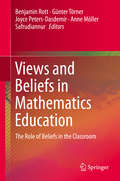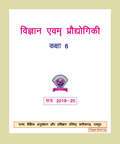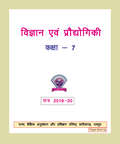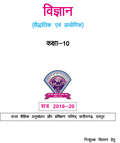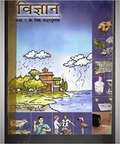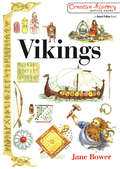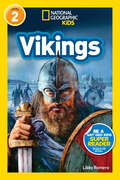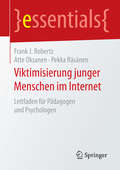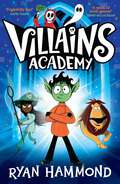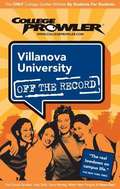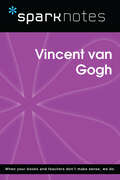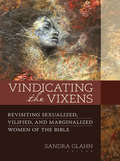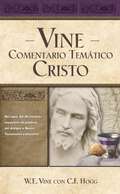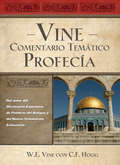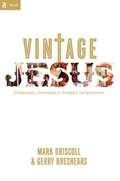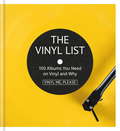- Table View
- List View
Views and Beliefs in Mathematics Education: The Role Of Beliefs In The Classroom
by Günter Törner Benjamin Rott Joyce Peters-Dasdemir Anne Möller SafrudiannurThe book is made up of 21 chapters from 25 presentations at the 23rd MAVI conference in Essen, which featured Alan Schoenfeld as keynote speaker. Of major interest to MAVI participants is the relationship between teachers’ professed beliefs and classroom practice. The first section is dedicated to classroom practices and beliefs regarding those practices, taking a look at prospective or practicing teachers’ views of different practices such as decision-making, the roles of explanations, problem-solving, patterning, and the use of play. The focus of the second section in this book deals with teacher change, which is notoriously difficult, even when the teachers themselves are interested in changing their practice. The third section of this book centers on the undercurrents of teaching and learning mathematics, what rises in various situations, causing tensions and inconsistencies. The last section of this book takes a look at emerging themes in affect-related research. In this section, papers discuss attitudes towards assessment.
Vigyan
by National Council Of Educational Research TrainingThis book prescribed by central board of secondary education, India for the students of class 6th subject science, studying through Hindi medium. This accessible version of the book doesn't leave any part of the book. The book is handy companion of the school and university students desiring to read facts in interesting way. NCERT books are must read for aspirants of competitive and job related examinations in India.
Vigyan
by National Council Of Educational Research TrainingThis book prescribed by central board of secondary education, India for the students of class 7th subject Science, studying through Hindi medium. This accessible version of the book doesn’t leave any part of the book. The book is handy companion of the school and university students desiring to read facts in interesting way. NCERT books are must read for aspirants of competitive and job related examinations in India.
Vigyan
by National Council Of Educational Research TrainingThis book prescribed by central board of secondary education, India for the students of class 8th subject Science, studying through Hindi medium. This accessible version of the book doesn’t leave any part of the book. The book is handy companion of the school and university students desiring to read facts in interesting way. NCERT books are must read for aspirants of competitive and job related examinations in India.
Vigyan Evam Pradyogikee Aur Computer Railway Group D (Competitive Exam)
by Indic TrustThe Science, Technology and Computer are the important and scoring subjects in Railway Group D examination. Accurate preparation is required to score good marks. This book helps the candidates to do so.
Vigyan Evam Praudyogiki class 6 - S.C.E.R.T. Raipur - Chhattisgarh Board: विज्ञान एवं प्रौद्योगिकी कक्षा 6 - एस.सी.ई.आर.टी. रायपुर - छत्तीसगढ़ बोर्ड
by Raipur C. G. Rajya Shaikshik Anusandhan Aur Prashikshan Parishadविज्ञान एवं प्रौद्योगिकी पाठ्यपुस्तक कक्षा 6 वी का राज्य शैक्षिक अनुसंधान और प्रशिक्षण परिषद् छत्तीसगढ़ रायपुर ने हिंदी भाषा में प्रकाशित किया गया है, इस पाठ्यपुस्तक में सोलह अध्याय दिये गए है। पाठ्यपुस्तक में हमारी पृथ्वी और सौर परिवार के बारे में बताया है, पर्यावरण के घटक, पदार्थ की प्रकृति और पदार्थों का पृथक्करण, हमारे चारों और होनेवाले बदल और परिवर्तन आदि के बारे में समजाया गया है। मापन, सजीवों के लक्षण एवं वर्गीकरण, सजीवों की संरचना तथा उनके कार्य, गति-बल तथा दाब इनके बारे में पाठ्यपुस्तक में स्पष्टीकरण दिया गया है। इस पाठ्यपुस्तक में विज्ञान और गणित के क्षेत्र में विश्व को गौरवशाली योगदान प्रदान करने वाले कुछ महान भारतीय वैज्ञानिकों तथा गणितज्ञों के विषय में जानकारी भी दी गई है।
Vigyan Evam Praudyogiki class 7 - S.C.E.R.T. Raipur - Chhattisgarh Board: विज्ञान एवं प्रोद्योगिकी कक्षा 7 - एस.सी.ई.आर.टी. रायपुर - छत्तीसगढ़ बोर्ड
by Raipur C. G. Rajya Shaikshik Anusandhan Aur Prashikshan Parishadविज्ञान एवं प्रोद्योगिकी पाठ्यपुस्तक कक्षा 7 वीं का राज्य शैक्षिक अनुसंधान और प्रशिक्षण परिषद् छत्तीसगढ़ रायपुर ने हिंदी भाषा में प्रकाशित किया गया है, इस पाठ्यपुस्तक में इक्कीस अध्याय दिये गए है। पाठ्यपुस्तक में हमारी पृथ्वी और पृथ्वी पर जीवन, जल, पदार्थ की संरचना और अम्ल क्षारक एवं लवण, मापन, सजीव जगत में संगठन, ऊष्मा तथा ताप और ऊष्मा का संचरण आदि के बारे में समजाया गया है। सजीवों में पोषण, सजीवों में श्वसन, रेशों से वस्त्र, प्रकाश का परावर्तन, सजीवों में परिवहन, उत्सर्जन, सजीवों में नियंत्रण एव समन्वय के बारे में पाठ्यपुस्तक में जानकारी दि है। स्थिर विद्युत, कंकाल जोड़ एवं पेशियाँ, मिट्टी, सजीवों में प्रजनन और विद्युत धारा ओर इसके प्रभाव आदि पुस्तक में स्पष्टीकरण दिया गया है। इस पाठ्यपुस्तक में वैज्ञानिकों के चिंतन तथा वैज्ञानिक पद्धति से मानव जीवन में आए क्रांतीकारी परिवर्तनों का अध्ययन करेंगे।
Vigyan Evam Praudyogiki class 8 - S.C.E.R.T. Raipur - Chhattisgarh Board: विज्ञान एवं प्रौद्योगिकी कक्षा 8 - एस.सी.ई.आर.टी. रायपुर - छत्तीसगढ़ बोर्ड
by Raipur C. G. Rajya Shaikshik Anusandhan Aur Prashikshan Parishadविज्ञान एवं प्रौद्योगिकी पाठ्यपुस्तक कक्षा 8वी का राज्य शैक्षिक अनुसंधान और प्रशिक्षण परिषद् छत्तीसगढ़ रायपुर ने हिंदी भाषा में प्रकाशित किया गया है, इस पाठ्यपुस्तक में सत्रह अध्याय दिये गए है। पाठ्यपुस्तक में आकाश दर्शन (आकाश में क्या-क्या है?), संश्लेषित रेशे और प्लास्टिक (संश्लेषित रेशे क्या है), वायुमण्डल, रासायनिक अभिक्रियाएँ - कब और कैसी-कैसी होती है, धातुएँ और अधातुएँ, कार्बन, शरीर की रचनात्मक एवं कार्यात्मक इकाई-कोशिका, सूक्ष्मजीव- एक अद्भुत संसार, प्रकाश का अपवर्तन आदी के बारे में बताया गया है। ध्वनि, विद्युत धारा के रासायनिक प्रभाव, ऊर्जा के स्रोत, खाद्य उत्पादन एवं प्रबंधन, कितना भोजन, कैसा भोजन और कुछ सामान्य रोग इनके बारे में पाठ्यपुस्तक में स्पष्टीकरण दिया गया है। इस पाठ्यपुस्तक में विज्ञान और गणित के क्षेत्र में विश्व को गौरवशाली योगदान प्रदान करने वाले कुछ महान भारतीय वैज्ञानिकों तथा गणितज्ञों के विषय में जानकारी भी दी गई है।
Vigyan Evam Prodyogiki ka Vikash
by Shilvant SinghBook on development of science and technology for civil service aspirants in India
Vigyan class 10 - S.C.E.R.T. Raipur - Chhattisgarh Board: विज्ञान कक्षा 10 - एस.सी.ई.आर.टी. रायपुर - छत्तीसगढ़ बोर्ड.
by Raipur C. G. Rajya Shaikshik Anusandhan Aur Prashikshan Parishadविज्ञान कक्षा 10 वी का राज्य शैक्षिक अनुसंधान और प्रशिक्षण परिषद् छत्तीसगढ़ रायपुर ने पुस्तक हिंदी भाषा में प्रकाशित किया गया है, इस पाठपुस्तक में विज्ञान संबंधित जानकारियों को विवेकपूर्ण तरीकों से प्राप्त करना, प्रयोगों से जुड़े और सिद्धान्तों को परखने के लिए अग्रसर किया गया है। कक्षा 10 में विज्ञान विषय के अन्तर्गत गणितीय आँकड़े इकट्ठे करने, आंकड़ों का विश्लेषण करने, उनकी तुलना करने और निष्कर्ष निकालने इन सभी प्रत्यक्ष अनुभव का इस पाठपुस्तक में समावेश किया गया है।
Vigyan class 7 - GSTB: વિજ્ઞાન ધોરણ ૭ - જીએસટીબી
by Gstbઆ પાઠ્ય પુસ્તકનો અનુવાદ તથા તેની સમીક્ષા નિષ્ણાત પ્રાધ્યાપકો અને શિક્ષકો પાસે કરાવવામાં આવ્યા છે અને સમીક્ષકોનાં સૂચનો અનુસાર હરતપ્રતમાં યોગ્ય સુધારા - વધારા કર્યા પછી આ પાઠયપુસ્તક પ્રસિદ્ધ કરવામાં આવેલ છે. જેમાં ૧૮ પ્રકરણ આપેલ છે.
Vigyan class 7 - NCERT: विज्ञान कक्षा 7 - एनसीईआरटी
by Rashtriy Shaikshik Anusandhan Aur Prashikshan Parishadविज्ञान कक्षा 7 के लिए यह पाठ्यपुस्तक युवा दिमागों को स्पष्ट समझ रखने में मदद करेगी कि पोषक तत्व क्या हैं और वे पौधों और जानवरों में क्यों महत्वपूर्ण हैं। छात्रों को एसिड, लवण और क्षार के बारे में एक संक्षिप्त विचार मिलता है और यह भी कि रासायनिक प्रतिक्रियाएं कैसे होती हैं। 7 वीं कक्षा के छात्रों के लिए बनाया गया, इस पुस्तक में उन सभी विषयों को शामिल किया गया है, जिन्हें केंद्रीय माध्यमिक शिक्षा बोर्ड द्वारा उल्लिखित किया गया है।
Vigyan class 9 - GSTB: વિજ્ઞાન ધોરણ ૯ - જીએસટીબી
by Gstbપ્રસ્તુત પાઠ્યપુસ્તક ધોરણ ૯ ના વિજ્ઞાન વિષય નું છે, જેમાં ૧૫ પ્રકરણ આપેલ છે.
Vikings
by Jane BowerThis innovative series is designed to help teachers bring history topics to life through imaginative creative arts activities. Each pack includes 10 laminated, double-sided cards, printed in full color. Every card describes in detail activities that recreate aspects of life in a particular historical period, using art, drama and dance. All activities are based on historically researched authentic practices of the time. Ideal for whole class or small group sessions, the packs are an inspiration for busy teachers looking for new ways to approach project work at Key Stage 2 - and can also easily be used with Key Stage 1 classes. Viking activities in this pack include recreating a Viking celebration through drama and dance; writing kennings and drapas; making Viking jewelry, brooches and armbands; runic writing to recreate magical charms; dyeing wool with plants and weaving tapestries; Viking food - making festival loaves; and Viking games - morels and chess.
Vikings (National Geographic Kids Readers)
by Libby RomeroMeet the seafaring adventurers, storytellers, and famous figures of Norse history in this new Leveled Reader, perfect for independent readers and kids who love learning about ancient cultures.Learn how the Vikings lived, worked, and played (...and pillaged!). Explore the rich history, culture, mythology and newest findings of the ever interesting Viking world. National Geographic Readers' expert-vetted text, along with brilliant images and a fun approach to reading have proved to be a winning formula with kids, parents and educators. Level 2 text provides accessible, yet wide-ranging, information for kids ready to read on their own. Each reader includes text written by an experienced, skilled children's books author, a photo glossary, and interactive features in which kids get to reinforce what they've learned in the book.
Viktimisierung junger Menschen im Internet: Leitfaden für Pädagogen und Psychologen (essentials)
by Frank J. Robertz Atte Oksanen Pekka RäsänenDieses essential gibt einen Überblick über potenzielle Gefahren der Internetnutzung für junge Menschen. Die Autoren befassen sich dabei insbesondere mit Risiken, die aus hassbasiertem Online-Material und möglicherweise schädigenden Inhalten hervorgehen. Ihre Ausführungen werden durch eine Darstellung aktueller Forschungsergebnisse im Ländervergleich ergänzt. Abschließende Empfehlungen zur Verbesserung des Schutzes von Kindern und Jugendlichen im Cyberspace helfen dabei, unserer Verantwortung für die junge Generation besser gerecht zu werden.
Villains Academy (Villains Academy #1)
by Ryan HammondBeing BAD has never felt so GOOD! The first in a villainously funny, highly illustrated young middle-grade series from author-illustrator Ryan Hammond. For fans of Amelia Fang, Dog Man and Grimwood. Don't miss the second installment, How to Steal a Dragon, out in October 2023, and the third installment, How to Win the Gruesome Games, out in April 2024! &‘Frightfully fun – Villains Academy had me cackling from the very first page!&’ Katie Tsang, co-author of the Dragon Realm series &‘I loved the spookily funny Villains Academy. It's a work of (evil) genius!&’ Jenny McLachlan, author of The Land of RoarWelcome to Villains Academy – the most prestigious villain school in the ENTIRE land. You will either leave here as a fully-formed villain . . . or in tatters. It's werewolf Bram&’s first day at Villains Academy. He really doesn&’t feel like a villain at all, but the coveted Villain of the Week trophy is up for grabs, and Bram knows he&’ll have to dig deep. With the help of new friends Mona the elf-witch, Bryan the lion, Shelia the ghost and Tony the skeleton, can Bram find his inner badness and become the villain he's always dreamed of being?PRAISE FOR VILLAINS ACADEMY: &‘A charmingly villainous adventure about friendship, school and unspeakable evil. Hammond is an exciting new author-illustrator double threat.&’ Louie Stowell, author of Loki: A Bad God&’s Guide to Being Good &‘Criminally fun!&’ Danny Wallace, author of The Day the Screens Went Blank &‘Heart-warming and hilarious – Villains Academy is a spookalicious treat, set to terrify every other book on your shelf.&’ Jack Meggitt-Phillips, author of The Beast and the Bethany &‘An absolute HOOT! Evil laughs aplenty!&’ Sophy Henn, author and illustrator of the Pizazz series &‘A joyful hug of a book with genuine warmth and heart.&’ Hannah Gold, author of The Last Bear &‘A delightfully fun adventure with real heart and humour.&’ Benjamin Dean, author of Me, My Dad and the End of the Rainbow &‘Immersive, funny, and with a cast of scarily loveable characters, Villains Academy made me feel like I was IN the book!&’ Mel Taylor-Bessent, author of The Christmas Carrolls &‘A fabulously funny adventure. I want to enrol in Villains Academy!&’ Nick Sheridan, author of The Case of the Runaway Brain &‘Wickedly funny and full of quirky yet loveable characters.&’ Iona Rangeley, author of Einstein the Penguin &‘This is a brilliant, bonkers work packed with top-notch illustration.&’ Jack Noel, author and illustrator of the Comic Classics series &‘Full of wonderful characters, Villains Academy is such a FUN read!&’ Rikin Parekh, illustrator of The Worst Class in the World series
Villanova University (College Prowler)
by Sean WrightNo university affiliations. No half-truths. No out-of-touch authors who haven't been in school for decades. A class project turned company, College Prowler produces guidebooks that are written by actual college students and cover the things students really want to know. Unlike other guides that jam everything into a five-pound book and devote only two pages to each college, our single-school guidebooks give students only the schools they want and all the information they need. From academics and diversity to nightlife and sports, we let the students tell it how it is. In addition to editorial reviews and grades for 20 different topics, more than 80 percent of each guide is composed of actual student reviews of their school. Whether readers are looking for "Best and Worst" lists, "Did You Knows?" or traditions, College Prowler guides have it all. Our books are the only place for local slang, urban legends, and tips on the best places to find a date, study, or grab a bite to eat.
Vincent van Gogh (SparkNotes Biography Guide)
by SparkNotesVincent van Gogh (SparkNotes Biography Guide) Making the reading experience fun! SparkNotes Biography Guides examine the lives of historical luminaries, from Alexander the Great to Virginia Woolf. Each biography guide includes:An examination of the historical context in which the person lived A summary of the person&’s life and achievements A glossary of important terms, people, and events An in-depth look at the key epochs in the person&’s career Study questions and essay topics A review test Suggestions for further reading Whether you&’re a student of history or just a student cramming for a history exam, SparkNotes Biography guides are a reliable, thorough, and readable resource.
Vindicating the Vixens: Revisiting Sexualized, Vilified, and Marginalized Women of the Bible
by Sandra GlahnGain a greater understanding of gender in the Bible through the eyes of a diverse group of evangelical scholars who assert that Christians have missed the point of some scriptural stories by assuming the women in them were "bad girls."Did the Samaritan woman really divorce five husbands in a world where women rarely divorced even one? Did Bathsheba seduce King David by bathing in the nude? Was Mary Magdalene really a reformed prostitute?While many have written studies of the women in the Bible, this is a new kind of book--one in which an international team of male and female scholars look afresh at vilified and neglected women in the Bible. The result is a new glimpse into God's heart for anyone, male or female, who has limited social power.
Vine Comentario temático: Cristo
by W. E. VineDisfrute los comentarios completos de W. E. Vine sobre la persona y obra de Cristo en un volumen.William Edwy Vine, autor del celebrado Diccionario expositivo de palabras del Antiguo y Nuevo Testamento exhaustivo, fue uno de los grandes eruditos bíblicos evangélicos del siglo XX. Trajo a todas sus obras un nivel de cuidado y precisión exegética raro en cualquier siglo, asegurándose que sus escritos aún hablen a esta generación y las futuras. Vine Comentario temático: Cristo presenta las obras de Vine sobre la vida y enseñanzas de Cristo.
Vine Comentario temático: Profecía
by Vine VineDisfrute los comentarios completos de W. E. Vine sobre profecía en un volumen.William Edwy Vine, autor del celebrado Diccionarioexpositivo de palabras del Antiguo y del Nuevo Testamento exhaustivo, fue unode los grandes eruditos bíblicos evangélicos del siglo XX. Trajo a todas susobras un nivel de cuidado y precisión exegética raro en cualquier siglo,asegurándose que sus escritos aún hablen a esta generación y las futuras. Este volumen de Vine comentario temático: Profecíapresenta las obras de Vine sobre profecía bíblica, la Segunda Venida y losúltimos días. La introducción general del libro y las instrucciones específicasantes de cada artículo explican el contexto original de las obras.
Vinnie the Dove: Targeting the v Sound (Speech Bubbles 2)
by Melissa PalmerVinnie loves to dive in water, but it always makes him so cold! Join him on his mission to find a way to finally get warmed up. This picture book targets the /v/ sound and is part of Speech Bubbles 2, a series of picture books that target specific speech sounds within the story. The series can be used for children receiving speech therapy, for children who have a speech sound delay/disorder, or simply as an activity for children’s speech sound development and/or phonological awareness. They are ideal for use by parents, teachers or caregivers. Bright pictures and a fun story create an engaging activity perfect for sound awareness. Picture books are sold individually, or in a pack. There are currently two packs available – Speech Bubbles 1 and Speech Bubbles 2. Please see further titles in the series for stories targeting other speech sounds.
Vintage Jesus: Timeless Answers to Timely Questions
by Mark Driscoll Gerry BreshearsSome two thousand years after he walked the earth, Jesus Christ is still a hot topic. And for all the ridiculous, twisted, Da Vinci Code-esque conspiracy theories and lies about Jesus that have permeated popular culture and even the academy over the years, the truth about his character, nature, and work has not changed. So what exactly is the truth about Jesus Christ? That's the question the authors of Vintage Jesus seek to answer by breaking it down into a number of sub-questions about Jesus, including Is Jesus the only God? Why did Jesus come to earth? Did Jesus rise from death? Why should we worship Jesus? and others. Nonbelievers and new Christians looking to sit down and delve into the topic of Jesus, asking the toughest, most confounding questions they can think of, will find solid, biblical answers presented in a relevant, accessible way. "In a society where the Nicene Creed doesn't hold as much water as a tall Americano, Mark Driscoll and Gerry Breshears take an unabashed stance on biblical theology that comes as a refreshing yet timeless hyssop in response to a Christian sociological breakdown of truth." Brandon Ebel, President, Tooth & Nail Records. "Mark Driscoll and Gerry Breshears combine profound understanding of modern culture with weighty Christian doctrine that is faithful to the Bible. It's written in such an interesting style that it's hard to put down. I strongly recommend it!" Wayne Grudem, Research Professor of Bible and Theology, Phoenix Seminary, Phoenix, Arizona. "A great book about Jesus--yesterday, today, and forever relevant. The answers provided are right on and meaningful to everyone." Allen R. Weiss, President, Worldwide Operations, Walt Disney Parks and Resorts. "This book reveals Mark Driscoll as a highly powerful, colorful, down-to-earth catechist, targeting teens and twenty-somethings with the old, old story told in modern street-cred style. And Professor Breshears ballasts a sometimes lurid but consistently vivid presentation of basic truth about the Lord Jesus Christ." J. I. Packer, Board of Governors, Professor of Theology, Regent College. "Wow! This is a powerful book. It's edgy and, frankly, it made me uncomfortable at certain points but for the right reasons. We need light, not polish, over the story of Jesus, and that's exactly what this well-written and provocative work provides. It may make you squirm, but the strong biblical orientation and the crisp historic perspectives give you a context for that squirming!" Dan Wolgemuth, President, Youth for Christ/USA, Inc. "This book presents an honest view of Jesus without giving in to the pressure to soften him up. I had to grapple with the real vintage Jesus. This is a Savior worth fighting for." Matt Lindland, 2000 Olympic silver medalist in wrestling; top-ranked middleweight mixed martial arts fighter. "This new book by Driscoll, one of the most promising young pastors I've met, and his theological partner Gerry Breshears, tells the old, old story in a contemporary, exciting, in-your-face manner. Though written to appeal to today's younger seekers, nothing of classic Christian theology is omitted. Those of my generation may bridle at some aspects of the book--but it's good if we do. This book is just what's needed for us to understand how to reach the postmoderns and a great tool to help all of us connect with young seekers. This is both bold and uncompromising. I can highly recommend it." Chuck Colson, Founder, Prison Fellowship.
Vinyl Me, Please: 100 Albums You Need on Vinyl and Why
by Vinyl Me, PleasePutting the style in your stylus, Vinyl Me, Please is more than your average book of music recommendations. Brought to you by the vinyl subscription club of the same name - 'the best damn record club there is'* - Vinyl Me, Please is a lively, visually handsome guide to the 100 albums you need to own on vinyl and why, with added extras: cocktail recipes to match your listening needs, and 'Like this, then listen to this' suggestions.With Vinyl Me, Please, your record collector needs are in safe hands: arranged alphabetically, this chic tome is your font of knowledge on what sounds work best on vinyl, while it also simultaneously captures the aesthetic thrills that crate-diggers derive from their passion. *If they do say so themselves.
